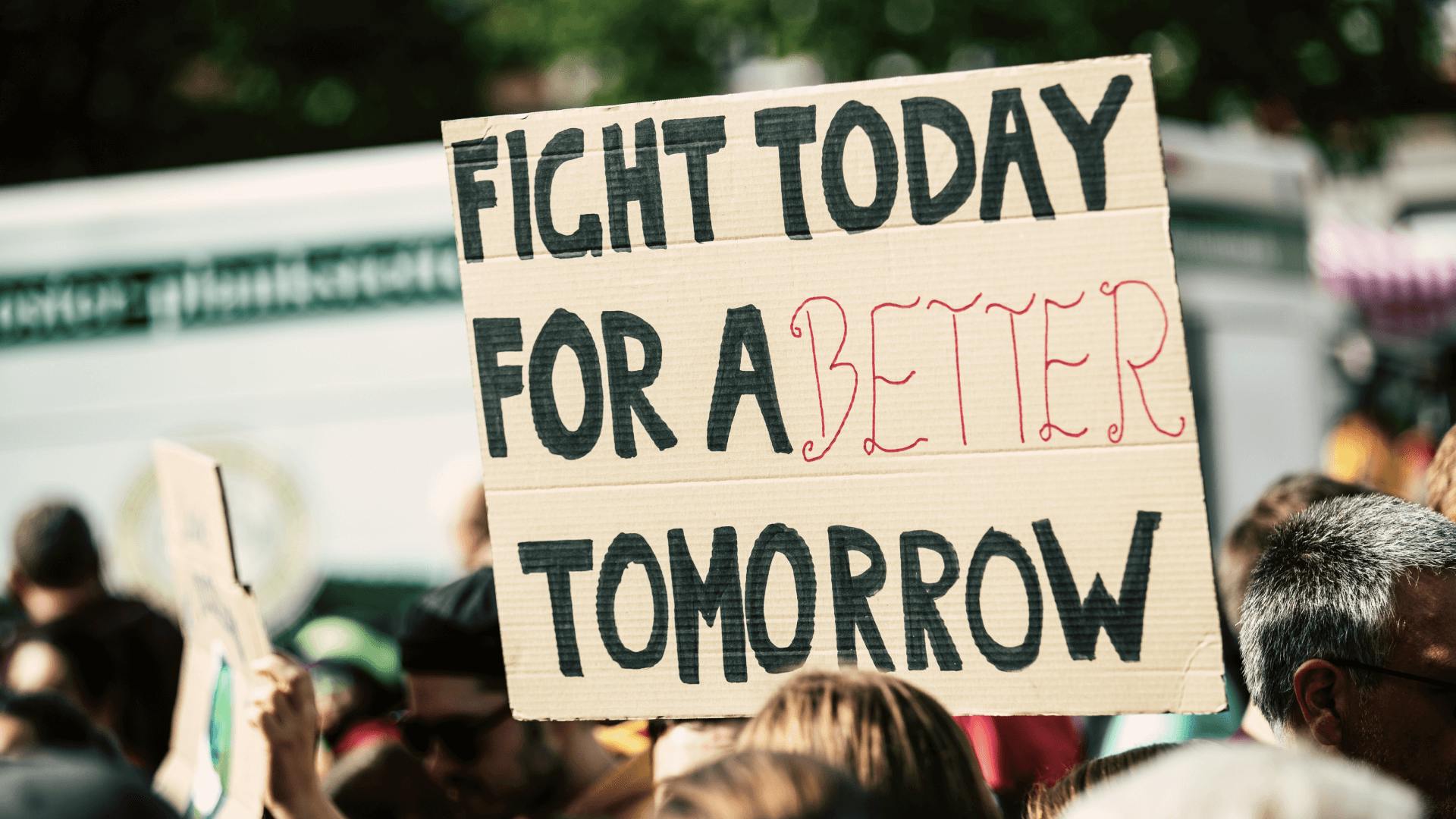Can rebels change an entire industry? Consumers matter more than they think!
What happened at COP26? Was it a “Blah Blah Blah” greenwashing festival, or was the conference successful enough to guide us on our way towards “only a 1.8 degree" warming of the planet? The description of the young activist Greta Thunberg differs significantly from the conclusion of Fatih Birol, Executive Director of the International Energy Agency. But who is right? Well, it depends on who you ask, but something that we all can agree on is that the most important thing we can do right now is to take action: climate action!
The good news: We’ve already accumulated the relevant knowledge and continue to develop solutions. At Tibber, we believe in empowering consumers to do just that; to act now. Truth be told, the greenest energy doesn’t come from an energy provider but is that which you do not consume in the first place. Hence, our app provides smarter, more efficient ways to consume energy (which we will unpack a little further down). Tibber helps you consume less. Many of you already recognise the potential of bringing this vision alive, and we are delighted to see our movement grow! We believe in the joint effort that will eventually lead to a more energy-smart future.
In alignment with the eight priorities of the Energy Transition Council (ETC), which is one of the higher-level outcomes from the COP26, we believe four priorities will accelerate the transformation of our current energy system:
1. No compromise: We need 100% renewable power grids
ETC priority No. 5: Green Grids Have you ever considered the origin of your electricity at home? No, not the power socket... rather its source of production. Ideally, that would be local, green energy. 💚
There is an EU-wide official and certificate-based standard called “Guarantees of Origin”. Each certificate proves that a set quantity of electricity originated from a specific renewable energy source. Of course, an energy grid solely based on renewables comes with pitfalls as well, as wind energy and solar power are volatile and thus not reliably controllable. Hence, we at Tibber favour a joint focus on “greenifying” the grid and the integration of innovative solutions to enable automated and more flexible consumption.
2. The future will be electric
ETC priority No. 6: Energy Efficiency Driving cars with a combustion engine is soooo outdated. At least in the long term, they will “die out”. Seriously, if you consider buying a new car, switch to an EV. By electrifying and digitising the mobility sector, we can automate and smartify many processes. For instance, your electric vehicle can be automatically charged (at your own house) when energy prices are low, namely when a lot of energy from renewable sources enters the grid while the consumption is low. Or you might even produce your own solar energy. In that case, you could connect your EV to your solar panels, e.g. via the Tibber app. By enabling the app to ‘solar smart charge’ your EV charging is optimised for time-dependent electricity rates to charge your car with surplus energy. In other words, solar-optimised charging, a way of smart energy consumption. ☀️⚡️
The further integration of renewables into our energy production requires a grid resistant to volatility. Tibber monitors and automates the necessary processes to equip private households to profit from a more flexible energy consumption. The app provides interested users with notifications and forecasts concerning price developments and empowers them to form smarter decisions for a more sustainable energy consumption.
3. Enabling tech will boost energy efficiency
ETC priority No. 1: Integrated energy planning We totally agree with the ETC and the priority to meet an increase in demand in a way that maximises cost-effectiveness, efficiency, socioeconomic benefits and emission reductions. We are always looking for innovative ways to integrate new smart home technologies into the Tibber App. They help to streamline and maximise cost-effectiveness. They are not only fun to play around with but help us generate insights about user behaviour and energy systems, which in turn we can use to improve our product. All of this aligns with our greater mission: empowering people to reduce their overall energy consumption.
In fact, a big thank you to such an engaged user base! Your curiosity and interest in the latest developments of our products and services accelerate our plans to further test and find new ways to reduce economic and environmental costs in the long term. There is always a smarter way. 🧠
4. Support a just energy transition as stated in Sustainable Development Goal 7
ETC priority No. 8: Just transition This one truly resonates with us. In fact, it aligns well with the founding story of Tibber! Both our founders had previously been employed in the energy sector and were baffled by the lack of innovation - especially concerning sustainable solutions. Upon further inquiry, they got to the bottom of it: Energy suppliers simply lacked the incentive to encourage consumers to consume less. Even nowadays, many traditional energy providers earn money per sold kilowatt-hour. In other words, the more energy they sell, the higher their profit. Our founders decided the common business model was outdated and started Tibber. So here we are, five years later, offering an innovative, transparent, and more sustainable way to consume electricity.
Turning energy into a fair product is one of the more significant challenges of our time. As the post-COP26 transition entails various public and private entities to enter and participate in the dialogue, we would like to call out all industry dinosaurs (aka traditional energy suppliers) to rethink their business models. 🦖

